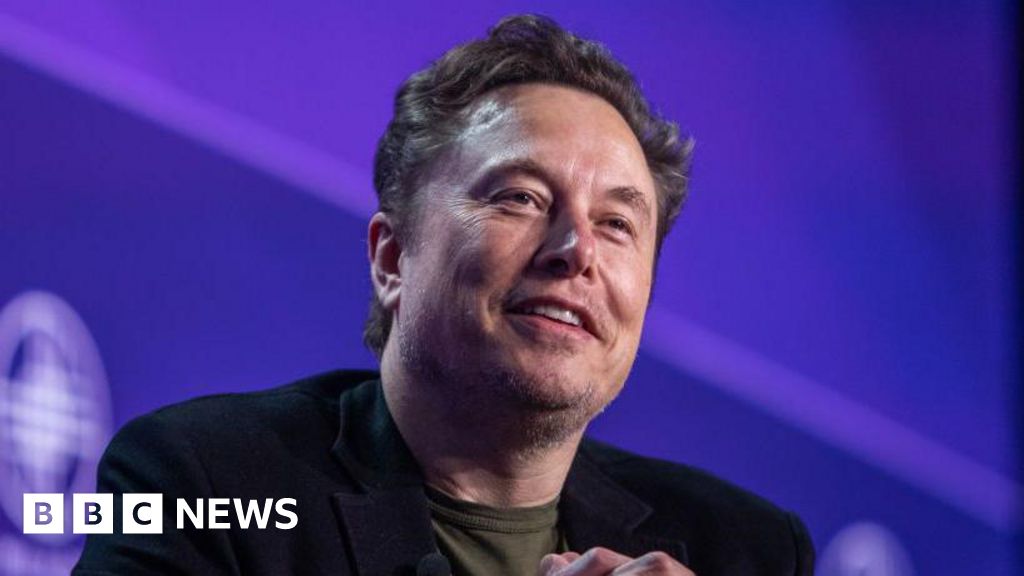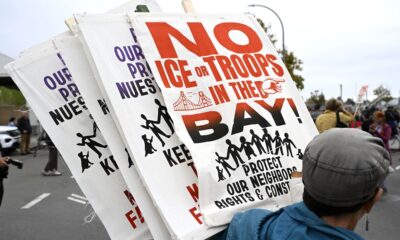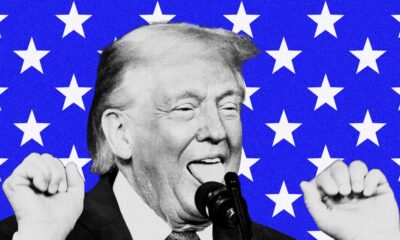Business
Trump says furniture tariffs are coming later this year

A shopper looks at chairs for sale at an At Home store in Queens, New York City, U.S., July 15, 2025.
Kylie Cooper | Reuters
The Trump administration has launched an investigation into imported furniture, President Donald Trump said Friday, setting the stage for new tariffs on a wide range of products.
“Within the next 50 days, that Investigation will be completed, and Furniture coming from other Countries into the United States will be Tariffed at a Rate yet to be determined,” Trump wrote on his Truth Social platform. “This will bring the Furniture Business back to North Carolina, South Carolina, Michigan, and States all across the Union.”
Following Trump’s post, shares of top furniture and home goods companies, including Wayfair, RH and Williams-Sonoma, tumbled in after-hours trading.
Wayfair imports much of its furniture. RH, formerly Restoration Hardware and Williams-Sonoma have been working to diversify their supply chains.
New tariffs could drive up costs for many of these major furniture brands. But not for all of them.
Shares of La-Z-Boy, which has most of its manufacturing in the U.S., rose on the news of Trump’s tariff plans.
Trump has already put steep tariffs on cars, steel and aluminum and he has floated similar customs duties for imported copper, pharmaceuticals and semiconductors.
It was unclear Friday whether new, sectoral tariffs on furniture would be applied on top of country specific tariff rates.
The Trump administration has spent months holding bilateral negotiations with U.S. trade partners in an effort to reset the balance of global trade. Recent framework agreements with the European Union and China have helped to calm markets, but leave many longer-term issues unresolved.
Any new tariffs would come at a difficult moment for the U.S. furniture industry, which faces a range of challenges.
Companies like Wayfair have seen demand fall for more than a year on items like new couches and dining sets, a drop caused in part by a slower overall housing market as buyers wait for interest rates to come down.
With fewer new homes being bought, consumers have fewer reasons to buy new furniture.
Plus, with stubborn inflation, they have been more choosy on where they are spending their discretionary income. Restaurants, new clothes, trips and home decor have all taken a hit.
— CNBC’s Gabrielle Fonrouge contributed to this report.
Business
Goldman Sachs is about to report fourth-quarter earnings — here’s what the Street expects

Goldman Sachs CEO David Solomon speaks during an interview at the Economic Club of Washington in Washington, D.C., U.S., Oct. 30, 2025.
Kevin Lamarque | Reuters
Goldman Sachs is scheduled to report fourth-quarter earnings before the opening bell Thursday.
Here’s what Wall Street expects:
- Earnings: $11.67 per share, according to LSEG
- Revenue: $13.79 billion, according to LSEG
- Trading revenue: Fixed income of $2.93 billion, equities of $3.70 billion, per StreetAccount
- Investing banking fees: $2.58 billion, per StreetAccount
Goldman Sachs is set up to be a beneficiary of several trends in the fourth quarter.
Trading desks across Wall Street have benefited in the last year as President Donald Trump’s policies have roiled markets for bonds, currencies, commodities and stocks.
For instance, rival JPMorgan Chase topped expectations for fourth-quarter results on equities and fixed income trading revenue that exceeded the StreetAccount estimate by a combined $460 million.
Global investment banking revenue in the quarter was 12% higher than a year ago, according to Dealogic, which should provide a boost to Goldman’s advisory business.
The firm’s asset and wealth management division should also see gains as stock market levels remained buoyant in the quarter.
Finally, the bank said last week that its deal to offload its Apple Card business to JPMorgan would result in a 46-cents-per-share boost to quarterly results.
This story is developing. Please check back for updates.
Business
After Backlash, Elon Musk Grok To Stop Creating Undressed Images Of Real People On X

Last Updated:
X decision came after facing outrage over the misuse of Grok, where the AI Chatbot was found to be complying with user requests to digitally undress images of real people.

Elon Musk’s Grok can no longer undress images of real people on X. (Representative Image)
Amid the rising concerns over the sexualised AI deepfakes in countries including the UK and US, Elon Musk’s Grok artificial intelligence chatbot will no longer edit “images of real people in revealing clothing” on X, the company confirmed Wednesday evening.
The company’s decision came after facing global outrage over the misuse of Grok, where the AI Chatbot was found to be complying with user requests to digitally undress images of adults and, in some cases, children.
“We have implemented technological measures to prevent the Grok account from allowing the editing of images of real people in revealing clothing such as bikinis. This restriction applies to all users, including paid subscribers,” X wrote via its Safety team account.
Within the last week xAi, which owns both Grok and X, restricted image generation for Grok on X to paying X premium subscribers
CNN reported that it has been observed that in the last few days, Grok’s X account had modified how it responded in general to users’ image generation requests, even for those subscribed to X premium.
United States of America (USA)
January 15, 2026, 08:34 IST
Read More
Business
Elon Musk’s X to block Grok from undressing images of real people

Elon Musk’s AI model Grok will no longer be able to edit photos of real people to show them in revealing clothing, after widespread concern over sexualised AI deepfakes in countries including the UK and US.
“We have implemented technological measures to prevent the Grok account from allowing the editing of images of real people in revealing clothing such as bikinis.
“This restriction applies to all users, including paid subscribers,” reads an announcement on X, which operates the Grok AI tool.
The change was announced hours after California’s top prosecutor said the state was probing the spread of sexualised AI deepfakes, including of children, generated by the AI model.
The update expands measures that stop all users, including paid subscribers, editing images of real people in revealing outfits.
X, formerly known as Twitter, also reiterated in a statement on Wednesday that only paid users will be able to edit images using Grok on its platform.
This will add an extra layer of protection by helping to ensure that those who try and abuse Grok to violate the law or X’s policies are held accountable, it said.
Users who try to generate images of real people in bikinis, underwear and similar clothing using Grok will be stopped from doing so according to the laws of their jurisdiction, X’s statement said.
In a statement on Wednesday, California Attorney General Rob Bonta said: “This material, which depicts women and children in nude and sexually explicit situations, has been used to harass people across the internet.”
Malaysia and Indonesia have blocked access to the chatbot over the images and UK Prime Minister Sir Keir Starmer warned X could lose the “right to self regulate” amid outrage over the AI images.
Britain’s media regulator, Ofcom, said on Monday that it would investigate whether X had failed to comply with UK law over the sexual images.
-

 Politics1 week ago
Politics1 week agoUK says provided assistance in US-led tanker seizure
-

 Entertainment1 week ago
Entertainment1 week agoDoes new US food pyramid put too much steak on your plate?
-

 Entertainment1 week ago
Entertainment1 week agoWhy did Nick Reiner’s lawyer Alan Jackson withdraw from case?
-

 Business1 week ago
Business1 week agoTrump moves to ban home purchases by institutional investors
-

 Sports1 week ago
Sports1 week agoPGA of America CEO steps down after one year to take care of mother and mother-in-law
-

 Sports4 days ago
Sports4 days agoClock is ticking for Frank at Spurs, with dwindling evidence he deserves extra time
-

 Business1 week ago
Business1 week agoBulls dominate as KSE-100 breaks past 186,000 mark – SUCH TV
-

 Business1 week ago
Business1 week agoGold prices declined in the local market – SUCH TV













